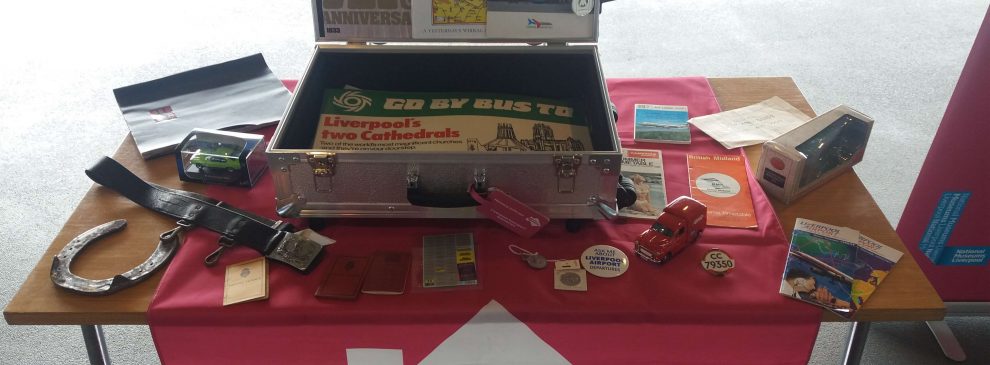House of Memories Brazil – How Museums Can Meet the Global Dementia Challenge
Added on Saturday, June 30th, 2018
…
In April this year, I was awarded a grant by LJMU’s Global Challenge Research Fund 2018 for our project ‘The value of museums in meeting the global dementia challenge’. This project aims to create a successful, sustainable and equitable partnership between the Institute of Cultural Capital (ICC), National Museums Liverpool and Museu Paulista of the University of Sao Paulo (MP-USP) addressing common interests in museum-led dementia care practice, using House of Memories as a case study. As part of our Crossing Boundaries study, which focuses on the value and impact of House of Memories as a museums-led dementia awareness training programme, I am now working with National Museums Liverpool to connect our research to international House of Memories developments in North and South America.
MP-USP is the oldest state museum of São Paulo. Opened in 1895 in Ipiranga – a significantly aged neighbourhood – it houses a permanent collection of over 450,000 items in the field of social history and material culture of Brazilian and Paulista society, similar to Museum of Liverpool’s collection. Since 2001, the MP-USP’s education department has developed socially inclusive projects, aiming at universal access. It develops resources based on the interpretation of materiality, using collection objects, replicas and methodologies that prioritise sensorial exploration – close to the values that underpin House of Memories.
The current GCRF project funded by LJMU aims to tackle directly the objectives of the World Health Organization’s Global Plan of Action on the Public Health Response to Dementia 2017-2025 (WHO-PHRD) that claims the importance of evaluation, knowledge production and dissemination on impact, social value, and the outcomes of culture-led interventions in dementia care. Equally, it targets the United Nations Sustainability Goals for ‘Good Health and Well-being’, ‘Quality Education’, and ‘Partnerships for the Goals’. The project builds on the Crossing Boundaries research experience aiming, thus, to share the team’s expertise and to support the development of evaluation frameworks in MP-USP. Equally, our aim is to create a substantive partnership that will generate impactful research on museum-led dementia care practices by exchanging innovative approaches and practices implemented through mobility experiences, transnational meetings, and social media engagement (which can be followed using #GCRFMuseum).
As part of this process, I visited Sao Paulo to observe MP-USP education practices, meet the MP-USP team, discuss implications of the extension of the House of Memories programme to Brazil, and collect information on auxiliary organizations that could support the successful implementation of the programme. In return, we have recently welcomed a team of colleagues from MP-USP to Liverpool – read about their visit here – and together the three organizations have now applied for a British Academy Global Challenge Research Fund grant in order to implement House of Memories at MP-USP (fingers crossed!).
Tackling global dementia challenges requires a consideration of local cultures, practices, histories and heritage, and an understanding of how these are complex and structurally unequal, according to gender, age, sexual orientation, disability, ethnicity, social class, religion and other geographic factors. Thus, museums are locus par excellence to understand the relevance of place-based historical cultures and heritages. Museum-led dementia awareness-training programmes address personal heritage – individual memories, material culture, identity, language, etc. This supports people with dementia and their caregivers planning for resilience and adapting to the changes that accompany the condition by carefully curating individual memories. In the context of sustainable development, the use of heritage (both personal and collective) is fundamental to fulfilling our aspirations to preserve dignity within person-centred care practices. The trauma of dementia and its impacts for people with dementia and their families provides a challenging context within which to consider the dynamics of cultural memories, their loss and retrieval, and the holistic cultural value of the House of Memories initiative to preserve individuals’ dignity.
This project started a partnership that will foster cultural participation among Brazilian citizens with deep cultural, social and health inequalities. It will promote means for the appropriation of the space of the museum and its collections by an audience that deeply needs investments in their social, health and cultural wellbeing. Moreover, the project will allow a better articulation between the personal and collective heritage and will foster the MP-USP’s advanced community engagement. From an academic point of view, it is our intention to foster a global academic partnership between ICC and USP supporting the knowledge transfer between the two research organizations, via exchange of staff and students, and equally supporting the knowledge transfer between research and teaching, by establishing our team as world-leaders in museum-led dementia care research and practice.










Leave a Reply